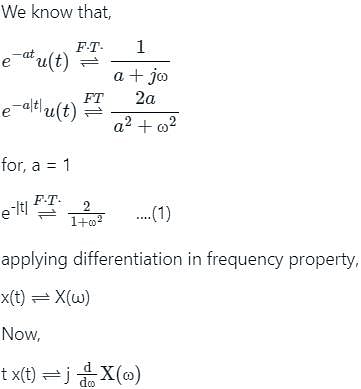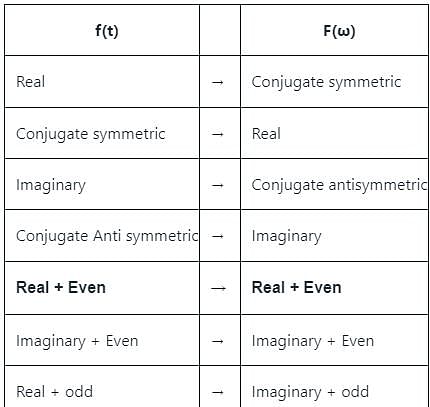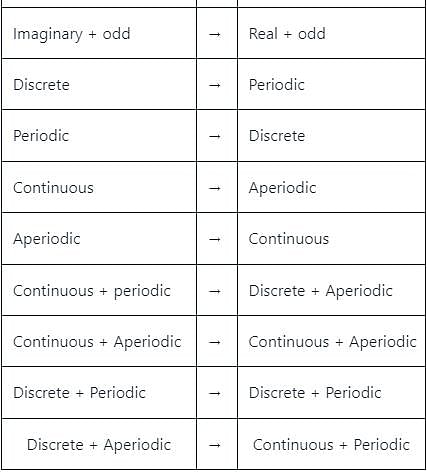Test: Fourier - 1 - Electrical Engineering (EE) MCQ
10 Questions MCQ Test Signals and Systems - Test: Fourier - 1
Determine the Fourier series coefficient for given periodic signal x(t).
Q. x(t) as shown in fig. P5.7.1
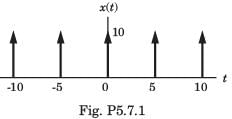
Q. x(t) as shown in fig. P5.7.1

Determine the Fourier series coefficient for given periodic signal x(t).
Q. x(t) as shown in fig. P5.7.2
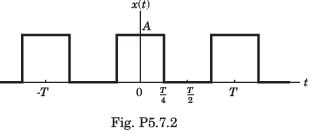
Q. x(t) as shown in fig. P5.7.2

| 1 Crore+ students have signed up on EduRev. Have you? Download the App |
Determine the Fourier series coefficient for given periodic signal x(t).
Q. x(t) as shown in fig. P5.7.3
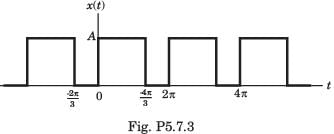
Q. x(t) as shown in fig. P5.7.3

Determine the Fourier series coefficient for given periodic signal x(t).
Q. x(t) as shown in fig. P5.7.4
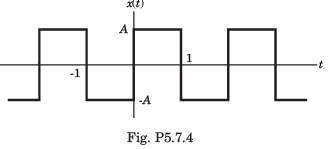
Determine the Fourier series coefficient for given periodic signal x(t).
Q. x(t) = sin2t
In the question, the FS coefficient of time-domain signal have been given. Determine the corresponding time domain signal and choose correct option.
Q. 
In the question, the FS coefficient of time-domain signal have been given. Determine the corresponding time domain signal and choose correct option.
Q. X [k] as shown in fig. P5.7.11, 
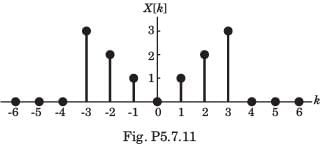
Which of the following is not Dirichlet’s condition for the Fourier series expansion?
In the Fourier transform, if the time domain signal x(t) is real and even, then the frequency domain signal X(jΩ) will be:
|
41 videos|52 docs|33 tests
|
|
41 videos|52 docs|33 tests
|
















